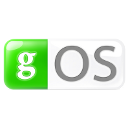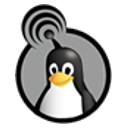Home » Feature Story » Laptops » Operating the Cloud: A roundup of the best Cloud-centric operating systems
Operating the Cloud: A roundup of the best Cloud-centric operating systems
By
Kshitij Sobti |
Updated on 16-Feb-2010
As internet connections become ubiquitous, we are seeing a greater number of applications become reliant on a persistent online link. We’ve progressed from getting antivirus updates through floppy discs — not more than a decade ago, to now — when we can install an operating system whose each and every application is loaded off the internet.
Google Chrome OS is not the sole concept of an Operating System which is so deeply ingrained with the presence of the internet; OSs have been getting cloud-ier for quite a while. On one side, we have online applications which behave as native applications – sending alerts, handling extensions, and on the other side we have desktop applications which behave more like web pages, such as the control panel in Windows Vista and 7; with interfaces interconnected through hyperlinks.
The marriage between the OS and internet has deepened over time, and has culminated into concepts such as Google’s Chrome OS. It is perhaps an extreme example of an OS which is entirely on the desktop, but with applications which are entirely on the cloud. On the other extreme we have something like eyeOS which is a web application, which lets you manage your online data through an operating system paradigm.
An operating system was meant to provide an abstraction from the intricacies of a machine’s hardware. Cloud-based OSs take this further, abstracting the interfaces provided by the internet which are getting increasingly intricate. On most of our current operating systems we use the operating system to manage and create our local data, in a cloud operating system we should then be able to manage our online data as well. Another way to look at it would be to use online applications to manage our local data. Much like a cyborg can be both a human with machine implants or a machine with biological implants, we can make the same case with cloud operating systems.
While Chrome OS can be considered an operating system where all applications, even the ones which work on local data, are online, the ones reviewed here almost the opposite: providing easy access to the interent and internet services by bringing them to the desktop, and integrating them into the interface. Many operating systems have been converging to this same goal of an internet-centric operating system, although perhaps not to the extent of Chrome OS. Through the following reviews we will take a look at some of the prime competitors in this field: xPud, Jolicloud, gOS, and Moblin.
For us Indians the feasibility the cloud OS is still in question. For any cloud-centric OS, the functionality provided by the OS even in offline circumstances needs to be evaluated as well. Let us see how these OSs fare in this increasingly competitive field.
 |
xPUD
A light, fast, modular Firefox based linux distro, which has you online in seconds.
|
 |
Jolicloud
A powerful linux distro optimized for netbooks, with a sleek easy to use interface.
|
 |
gOS 3.1 Widgets
Heavily wigetized Linux distribution with a large collection of internet application built in.
|
 |
Moblin
An easy to use Linux which is optimized for mobile computers, and is hightly integrated with internet services.
|
| Conclusion
An overview of Google Chrome, and it’s place as a cloud operating system.
|

